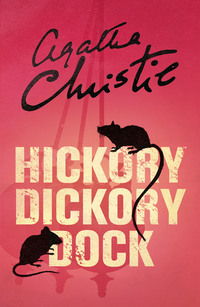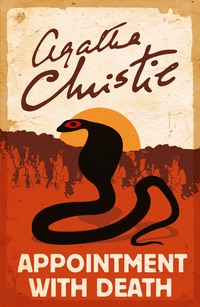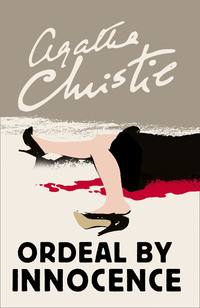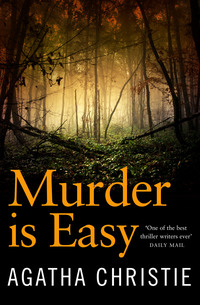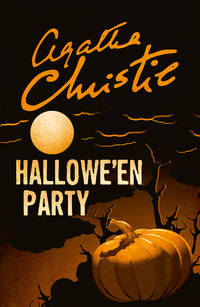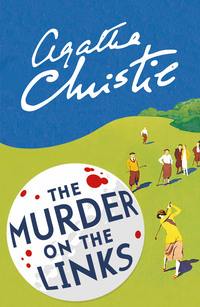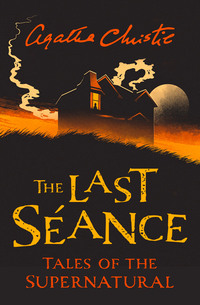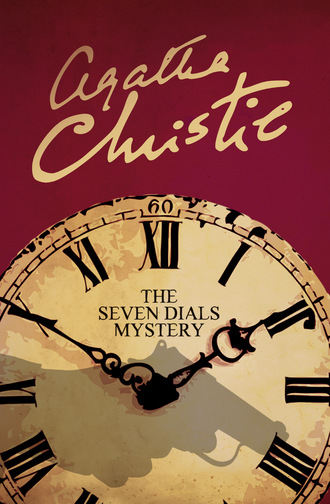
Полная версия

Agatha Christie
The Seven Dials Mystery

Copyright
Published by HarperCollinsPublishers Ltd
1 London Bridge Street
London SE1 9GF
www.harpercollins.co.uk
First published in Great Britain by Collins 1929
Copyright © 1929 Agatha Christie Ltd. All rights reserved.
Cover by www.juliejenkinsdesign.com © HarperCollins/Agatha Christie Ltd 2008
www.agathachristie.com
Agatha Christie asserts the moral right to be identified as the author of this work
A catalogue copy of this book is available from the British Library
All rights reserved under International and Pan-American Copyright Conventions. By payment of the required fees, you have been granted the non-exclusive, non-transferable right to access and read the text of this ebook on screen. No part of this text may be reproduced, transmitted, down-loaded, decompiled, reverse engineered, or stored in or introduced into any information storage and retrieval system, in any form or by any means, whether electronic or mechanical, now known or hereinafter invented, without the express written permission of HarperCollins ebooks
HarperCollinsPublishers has made every reasonable effort to ensure that any picture content and written content in this ebook has been included or removed in accordance with the contractual and technological constraints in operation at the time of publication
Source ISBN: 9780007122592
Ebook Edition © OCTOBER 2010 ISBN: 9780007422791
Version: 2020-08-06
Note to Readers
This ebook includes the following accessibility features which, if supported by your device, can be accessed via your e-reader/accessibility settings:
Change of font size and line height
Change of background and font colours
Change of font
Change justification
Text to speech
Contents
Cover
Title Page
Copyright
Note to Readers
Introduction
Chapter 1: On Early Rising
Chapter 2: Concerning Alarum Clocks
Chapter 3: The Joke that Failed
Chapter 4: A Letter
Chapter 5: The Man in the Road
Chapter 6: Seven Dials Again
Chapter 7: Bundle Pays a Call
Chapter 8: Visitors for Jimmy
Chapter 9: Plans
Chapter 10: Bundle Visits Scotland Yard
Chapter 11: Dinner with Bill
Chapter 12: Inquiries at Chimneys
Chapter 13: The Seven Dials Club
Chapter 14: The Meeting of the Seven Dials
Chapter 15: The Inquest
Chapter 16: The House Party at the Abbey
Chapter 17: After Dinner
Chapter 18: Jimmy’s Adventures
Chapter 19: Bundle’s Adventures
Chapter 20: Loraine’s Adventures
Chapter 21: The Recovery of the Formula
Chapter 22: The Countess Radzky’s Story
Chapter 23: Superintendent Battle in Charge
Chapter 24: Bundle Wonders
Chapter 25: Jimmy Lays his Plans
Chapter 26: Mainly about Golf
Chapter 27: Nocturnal Adventure
Chapter 28: Suspicions
Chapter 29: Singular Behaviour of George Lomax
Chapter 30: An Urgent Summons
Chapter 31: The Seven Dials
Chapter 32: Bundle is Dumbfounded
Chapter 33: Battle Explains
Chapter 34: Lord Caterham Approves
Keep Reading
About the Author
Other Books by Agatha Christie
About the Publisher
Introduction
by Val McDermid
Things that everybody knows about Agatha Christie: she produced a lot of books that still outsell the competition; she was the greatest plotter of the classic detective story; she did a vanishing act and turned up amnesiac in Harrogate, identified by the banjo player in the hotel band; she wrote the longest-running play in theatrical history, The Mousetrap; and she couldn’t write thrillers.
So why am I suggesting that anyone would want to read The Seven Dials Mystery? After all, it has all the ingredients of the classic 1920s thriller, as exemplified by; A. E. W. Mason, Sapper and John Buchan. Secret plans, evil foreigners, marvellous cars with running boards and powerful engines, the joint threats of Germany and Communist Russia, house parties, young men wandering round with loaded revolvers and plucky young women–they’re all there by the bucketload.
Oh, and let’s not forget the secret society that meets behind closed doors, whose members are masked so not even they know who the other members are. Bulldog Drummond and Richard Hannay territory, surely? Which we know that Christie can’t do. Right?
Wrong. Because The Seven Dials Mystery isn’t a thriller. It’s a pastiche of a thriller, an antidote to the gung-ho chest-beating of the boys. It’s wry, it’s got its tongue planted firmly in its cheek and it subverts the whole genre it appears to be part of, not least because as well as all of this, it also delivers cleverly dovetailed plotting with a typical Christie flourish at the end. ‘Ah yes,’ we sigh. ‘Fooled again.’ If one of our Young Turks did something similar with the thriller now, we’d all nod sagely and go, ‘how very post-modern, how very self-referential and knowing, how very metafictional.’
But that was then and this is now. So Christie gets no credit for poking her tongue out at the big boys who set the agenda for what a thriller should be. I mean, how can a nice middle-class wife and mother be considered a subversive? How embarrassing would that be for the leather-jacketed iconoclasts?
But the fact remains that The Seven Dials Mystery really doesn’t perform as expected.
As well as showing that when it came to sleight of hand, Agatha Christie just couldn’t help herself, what The Seven Dials Mystery reveals is the side of its author that everybody seems to forget. (Not surprisingly, when you look at those stern jacket photographs…) She had a sense of humour. It was sly and shrewd, and never far from the surface.
It’s there in the very first Jane Marple mystery in the character of Griselda, the hopelessly inappropriate wife of the very conservative vicar. And it continues in the Marple novels with, for example, a series of sly digs at Miss Marple’s nephew, the literary novelist Raymond West, whose pretensions are a constant source of bubble-bursting on Christie’s part.
And it’s there in the Poirot mysteries too. Perhaps Christie’s funniest as well as her most self-referential character appears regularly there–the crime writer Ariadne Oliver. Mrs Oliver, with her perpetually bursting bags of apples and her disregard for convention, is clearly a thinly disguised version of Christie herself.
Where Christie has her Belgian detective whom she came to dislike intensely, Mrs Oliver has a Finn. She is constantly to be heard complaining bitterly about her folly in creating a depressive detective from a country about which she knew nothing and has had to learn far too much. She moans that her publisher and her readers won’t let her kill him off because they like him too much. All of this is delivered in such a way that it’s impossible to avoid a wry smile at the character’s expense and at Christie’s too.
From the very first paragraph of The Seven Dials Mystery, we should be in no doubt that we’re in a world of Wodehousian insouciance. No one could have written such an opening, not even in 1929, without being conscious of its parodic quality.
That amiable youth, Jimmy Thesiger, came racing down the big staircase at Chimneys two steps at a time. So precipitate was his descent that he collided with Tredwell, the stately butler, just as the latter was crossing the hall bearing a fresh supply of hot coffee. Owing to the marvellous presence of mind and masterly agility of Tredwell, no casualty occurred. ‘Sorry,’ apologized Jimmy. ‘I say, Tredwell, am I the last down?’
Substitute Bertie Wooster for Jimmy Thesiger and Jeeves for Tredwell, and it wouldn’t feel at all out of place. I think it’s safe to say that Christie wasn’t setting up in competition with Buchan and Sapper when she wrote this novel.
When critics consider Christie now, they often point to the apparent intolerance and lack of political correctness revealed by her attitudes to class and to other races. It’s true that she patronises the lower classes and is extraordinarily offensive about Jews, Germans and Russians, among others. But in this she reflected the attitudes of a woman of her class and generation. It would have been remarkable if she had displayed different attitudes. Even a feminist icon like Virginia Woolf, writing at around the same time, displays an unnerving lack of insight into the lives and dreams of the ‘servant classes.’
But that hasn’t stopped people leaping on Christie as an example of all that is worst about the English. She’s accused of snobbery, of insensitivity, of racial and class stereotyping.
But how valid are these criticisms? For myself, I’ve always thought that the true test of people’s beliefs lies in their sense of humour. What they find funny will tell you far more about someone than their serious professions of belief. It’s often seemed to me that those we make the butts of our jokes are those for whom we nurse our deepest and most secret contempt.
So what does Christie make fun of in this novel?
Well, first there is the aristocracy. The egotistical, indolent and almost indigent Lord Caterham (a title absurd in itself, Caterham being the epitome of stifling Home Counties suburbia) is drawn with affection, but where Buchan or Sapper would have shown him as a figure of status, worthy of respect and trust, Christie shows him as a figure of fun who is indulged by his feisty daughter. He’s a not-too distant relative of Wodehouse’s Lord Emsworth.
Christie teases the nouveau riche just as wickedly. Sir Oswald and Lady Coote are perceptively lampooned, the one for his over-reaching ambition, the other for her failure to escape her lower middle-class sensibilities. We see her treated with disdain by the servants, while her husband fails to see how little acceptance his wealth, his title and his material success have brought him.
But the upper middle classes are given no more leeway than the arrivistes. The Seven Dials Mystery is peppered with ineffectual Oxbridge Foreign Office young men being rescued by their women. The men are silly asses, who avoid disaster more by luck and having the right people behind them than by finely honed judgement.
But most importantly, prejudice comes under the cosh. There are several characters in The Seven Dials Mystery about whom we are invited to make knee-jerk judgements, from the mysterious East European countess to the apparently reliable but unimaginative Scotland Yard detective. All of these snap decisions would fall into line with the received bigotry of the time.
Yet by the end of the novel, Christie has forced a reversal of almost all of these positions.
I’m not suggesting that she was actually a secret radical who was aiming to subvert the narrow-minded intolerance of her time and class. That would be patently absurd, for Agatha Christie was no revolutionary.
But she was far less of a hidebound conservative than is generally assumed. There is clearly more to The Seven Dials Mystery than a facile attempt to turn everything on its head in order to make the ‘least likely person’ hypothesis work. There is, I believe, clear evidence that Christie saw her world with a far clearer and colder eye than those who disparage her understand.
The Seven Dials Mystery is the perfect antidote to anyone who has overdosed on the classic English thriller from between the wars. But it’s also worth reading for the sheer skill with which Christie plays with her readers’ expectations and uses them to play the cleverest of narrative tricks with us.
It’s all sleight of hand. And the quickness of Christie’s hand still continues to deceive our eyes, all those years later.
Chapter 1
On Early Rising
That amiable youth, Jimmy Thesiger, came racing down the big staircase at Chimneys two steps at a time. So precipitate was his descent that he collided with Tredwell, the stately butler, just as the latter was crossing the hall bearing a fresh supply of hot coffee. Owing to the marvellous presence of mind and masterly agility of Tredwell, no casualty occurred.
‘Sorry,’ apologized Jimmy. ‘I say, Tredwell, am I the last down?’
‘No, sir. Mr Wade has not come down yet.’
‘Good,’ said Jimmy, and entered the breakfast room.
The room was empty save for his hostess, and her reproachful gaze gave Jimmy the same feeling of discomfort he always experienced on catching the eye of a defunct codfish exposed on a fisherman’s slab. Yet, hang it all, why should the woman look at him like that? To come down at a punctual nine-thirty when staying in a country house simply wasn’t done. To be sure, it was now a quarter past eleven which was, perhaps, the outside limit, but even then–
‘Afraid I’m a bit late, Lady Coote. What?’
‘Oh, it doesn’t matter,’ said Lady Coote in a melancholy voice.
As a matter of fact, people being late for breakfast worried her very much. For the first ten years of her married life, Sir Oswald Coote (then plain Mr) had, to put it badly, raised hell if his morning meal were even a half-minute later than eight o’clock. Lady Coote had been disciplined to regard unpunctuality as a deadly sin of the most unpardonable nature. And habit dies hard. Also, she was an earnest woman, and she could not help asking herself what possible good these young people would ever do in the world without early rising. As Sir Oswald so often said, to reporters and others: ‘I attribute my success entirely to my habits of early rising, frugal living, and methodical habits.’
Lady Coote was a big, handsome woman in a tragic sort of fashion. She had large, mournful eyes and a deep voice. An artist looking for a model for ‘Rachel mourning for her children’ would have hailed Lady Coote with delight. She would have done well, too, in melodrama, staggering through the falling snow as the deeply wronged wife of the villain.
She looked as though she had some terrible secret sorrow in her life, and yet if the truth be told, Lady Coote had had no trouble in her life whatever, except the meteoric rise to prosperity of Sir Oswald. As a young girl she had been a jolly flamboyant creature, very much in love with Oswald Coote, the aspiring young man in the bicycle shop next to her father’s hardware store. They had lived very happily, first in a couple of rooms, and then in a tiny house, and then in a larger house, and then in successive houses of increasing magnitude, but always within a reasonable distance of ‘the Works’, until now Sir Oswald had reached such an eminence that he and ‘the Works’ were no longer interdependent, and it was his pleasure to rent the very largest and most magnificent mansions available all over England. Chimneys was a historic place, and in renting it from the Marquis of Caterham for two years, Sir Oswald felt that he had attained the top notch of his ambition.
Lady Coote was not nearly so happy about it. She was a lonely women. The principal relaxation of her early married life had been talking to ‘the girl’–and even when ‘the girl’ had been multiplied by three, conversation with her domestic staff had still been the principal distraction of Lady Coote’s day. Now, with a pack of housemaids, a butler like an archbishop, several footmen of imposing proportions, a bevy of scuttling kitchen and scullery maids, a terrifying foreign chef with a ‘temperament’, and a housekeeper of immense proportions who alternately creaked and rustled when she moved, Lady Coote was as one marooned on a desert island.
She sighed now, heavily, and drifted out through the open window, much to the relief of Jimmy Thesiger, who at once helped himself to more kidneys and bacon on the strength of it.
Lady Coote stood for a few moments tragically on the terrace and then nerved herself to speak to MacDonald, the head gardener, who was surveying the domain over which he ruled with an autocratic eye. MacDonald was a very chief and prince among head gardeners. He knew his place–which was to rule. And he ruled–despotically.
Lady Coote approached him nervously.
‘Good-morning, MacDonald.’
‘Good-morning, m’lady.’
He spoke as head gardeners should speak–mournfully, but with dignity–like an emperor at a funeral.
‘I was wondering–could we have some of those late grapes for dessert to-night?’
‘They’re no fit for picking yet,’ said MacDonald.
He spoke kindly but firmly.
‘Oh!’ said Lady Coote.
She plucked up courage.
‘Oh! but I was in the end house yesterday, and I tasted one and they seemed very good.’
MacDonald looked at her, and she blushed. She was made to feel that she had taken an unpardonable liberty. Evidently the late Marchioness of Caterham had never committed such a solecism as to enter one of her own hothouses and help herself to grapes.
‘If you had given orders, m’lady, a bunch should have been cut and sent in to you,’ said MacDonald severely.
‘Oh, thank you,’ said Lady Coote. ‘Yes, I will do that another time.’
‘But they’re no properly fit for picking yet.’
‘No,’ murmured Lady Coote, ‘no, I suppose not. We’d better leave it then.’
MacDonald maintained a masterly silence. Lady Coote nerved herself once more.
‘I was going to speak to you about the piece of lawn at the back of the rose garden. I wondered if it could be used as a bowling green. Sir Oswald is very fond of a game of bowls.’
‘And why not?’ thought Lady Coote to herself. She had been instructed in her history of England. Had not Sir Francis Drake and his knightly companions been playing a game of bowls when the Armada was sighted? Surely a gentlemanly pursuit and one to which MacDonald could not reasonably object. But she had reckoned without the predominant trait of a good head gardener, which is to oppose any and every suggestion made to him.
‘Nae doot it could be used for that purpose,’ said MacDonald non-committally.
He threw a discouraging flavour into the remark, but its real object was to lure Lady Coote on to her destruction.
‘If it was cleared up and–er–cut–and–er–all that sort of thing,’ she went on hopefully.
‘Aye,’ said MacDonald slowly. ‘It could be done. But it would mean taking William from the lower border.’
‘Oh!’ said Lady Coote doubtfully. The words ‘lower border’ conveyed absolutely nothing to her mind–except a vague suggestion of a Scottish song–but it was clear that to MacDonald they constituted an insuperable objection.
‘And that would be a pity,’ said MacDonald.
‘Oh, of course,’ said Lady Coote. ‘It would.’ And wondered why she agreed so fervently.
MacDonald looked at her very hard.
‘Of course,’ he said, ‘if it’s your orders, m’lady–’
He left it like that. But his menacing tone was too much for Lady Coote. She capitulated at once.
‘Oh, no,’ she said. ‘I see what you mean, MacDonald. N–no–William had better get on with the lower border.’
‘That’s what I thocht meself, m’lady.’
‘Yes,’ said Lady Coote. ‘Yes, certainly.’
‘I thocht you’d agree, m’lady,’ said MacDonald.
‘Oh, certainly,’ said Lady Coote again.
MacDonald touched his hat and moved away.
Lady Coote sighed unhappily and looked after him. Jimmy Thesiger, replete with kidneys and bacon, stepped out on to the terrace beside her, and sighed in quite a different manner.
‘Topping morning, eh?’ he remarked.
‘Is it?’ said Lady Coote absently. ‘Oh, yes, I suppose it is. I hadn’t noticed.’
‘Where are the others? Punting on the lake?’
‘I expect so. I mean, I shouldn’t wonder if they were.’
Lady Coote turned and plunged abruptly into the house again. Tredwell was just examining the coffee pot.
‘Oh, dear,’ said Lady Coote. ‘Isn’t Mr–Mr–’
‘Wade, m’lady?’
‘Yes, Mr Wade. Isn’t he down yet?’
‘No, m’lady.’
‘It’s very late.’
‘Yes, m’lady.’
‘Oh, dear. I suppose he will come down sometime, Tredwell?’
‘Oh, undoubtedly, m’lady. It was eleven-thirty yesterday morning when Mr Wade came down, m’lady.’
Lady Coote glanced at the clock. It was now twenty minutes to twelve. A wave of human sympathy rushed over her.
‘It’s very hard luck on you, Tredwell. Having to clear and then get lunch on the table by one o’clock.’
‘I am accustomed to the ways of young gentlemen, m’lady.’
The reproof was dignified, but unmistakable. So might a prince of the Church reprove a Turk or an infidel who had unwittingly committed a solecism in all good faith.
Lady Coote blushed for the second time that morning. But a welcome interruption occurred. The door opened and a serious, spectacled young man put his head in.
‘Oh, there you are, Lady Coote. Sir Oswald was asking for you.’
‘Oh, I’ll go to him at once, Mr Bateman.’
Lady Coote hurried out.
Rupert Bateman, who was Sir Oswald’s private secretary, went out the other way, through the window where Jimmy Thesiger was still lounging amiably.
‘’Morning, Pongo,’ said Jimmy. ‘I suppose I shall have to go and make myself agreeable to those blasted girls. You coming?’
Bateman shook his head and hurried along the terrace and in at the library window. Jimmy grinned pleasantly at his retreating back. He and Bateman had been at school together, when Bateman had been a serious, spectacled boy, and had been nicknamed Pongo for no earthly reason whatever.
Pongo, Jimmy reflected, was very much the same sort of ass now that he had been then. The words ‘Life is real, life is earnest’ might have been written specially for him.
Jimmy yawned and strolled slowly down to the lake. The girls were there, three of them–just the usual sort of girls, two with dark shingled heads and one with a fair shingled head. The one that giggled most was (he thought) called Helen–and there was another called Nancy–and the third one was, for some reason, addressed as Socks. With them were his two friends, Bill Eversleigh and Ronny Devereux, who were employed in a purely ornamental capacity at the Foreign Office.
‘Hallo,’ said Nancy (or possibly Helen). ‘It’s Jimmy. Where’s what’s his name?’
‘You don’t mean to say,’ said Bill Eversleigh, ‘that Gerry Wade’s not up yet? Something ought to be done about it.’
‘If he’s not careful,’ said Ronny Devereux, ‘he’ll miss his breakfast altogether one day–find it’s lunch or tea instead when he rolls down.’
‘It’s a shame,’ said the girl called Socks. ‘Because it worries Lady Coote so. She gets more and more like a hen that wants to lay an egg and can’t. It’s too bad.’
‘Let’s pull him out of bed,’ suggested Bill. ‘Come on, Jimmy.’
‘Oh! let’s be more subtle than that,’ said the girl called Socks. Subtle was a word of which she was rather fond. She used it a great deal.
‘I’m not subtle,’ said Jimmy. ‘I don’t know how.’
‘Let’s get together and do something about it tomorrow morning,’ suggested Ronny vaguely. ‘You know, get him up at seven. Stagger the household. Tredwell loses his false whiskers and drops the tea urn. Lady Coote has hysterics and faints in Bill’s arms–Bill being the weight carrier. Sir Oswald says “Ha!” and steel goes up a point and five eighths. Pongo registers emotion by throwing down his spectacles and stamping on them.’
‘You don’t know Gerry,’ said Jimmy. ‘I daresay enough cold water might wake him–judiciously applied, that is. But he’d only turn over and go to sleep again.’


